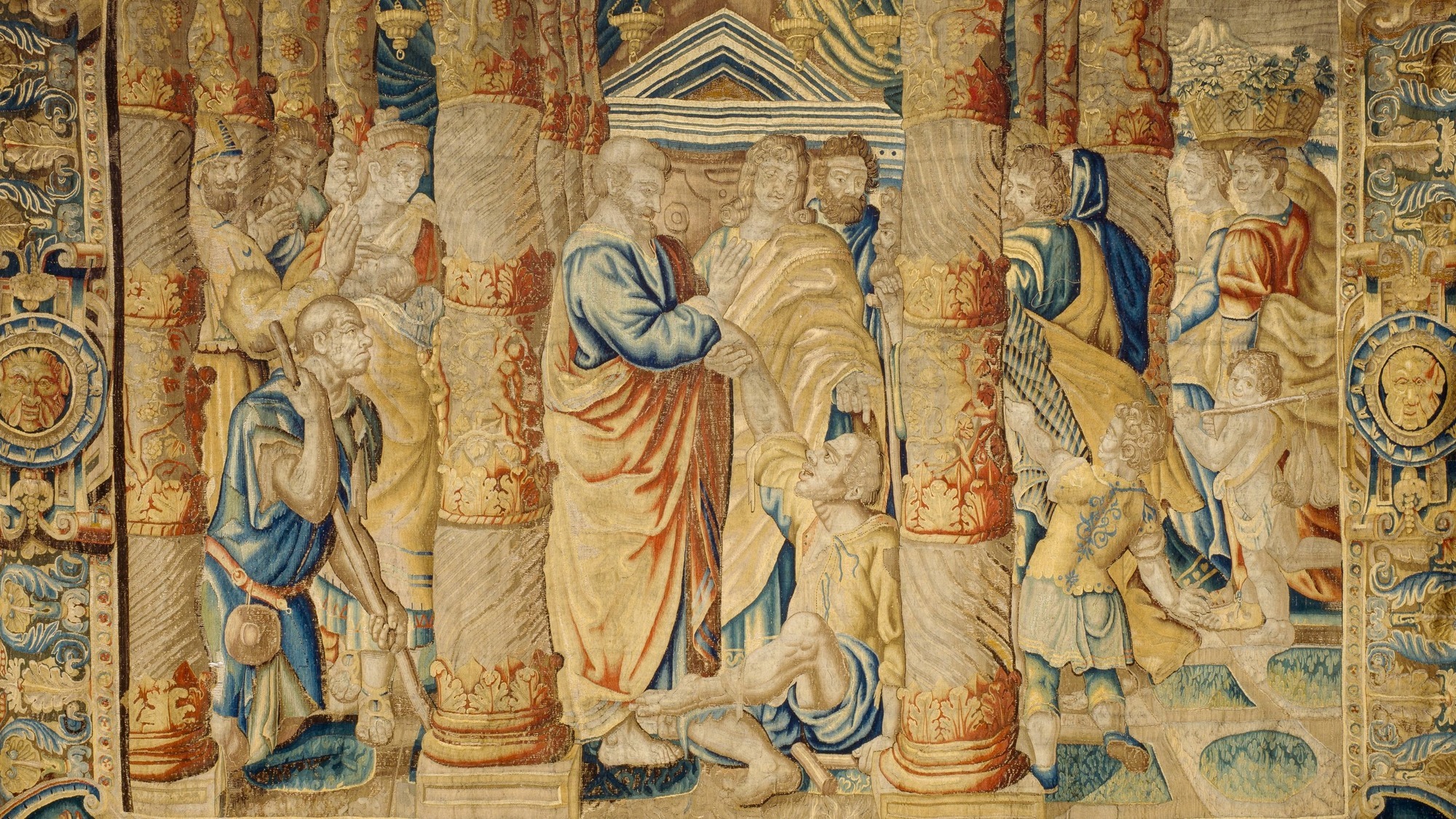What the Book of Joshua Shows Us about Love and Unity

Photo Credit: Birmingham Museums Trust on Unsplash
Disclosure: This post may contain affiliate links, meaning Beautiful Christian Life LLC may get a commission if you decide to make a purchase through its links, at no cost to you.
The world is like a ravaged tapestry, a once beautiful piece of art rent into millions of angry pieces by sin. The severing of family ties and loving relationships started with Adam and Eve following their rebellion against God, with Adam shifting blame to Eve for their disobedience (Gen. 3:12). Since then rivalries have expanded to include various entities and issues: corporations and communities, socioeconomic classes, diverse ethnic groups, church practices, political loyalties, and many more. So how are Christians to maneuver in this world full of division alongside their Christian brothers and sisters?
Family Ties
Scripture teaches that believers have a wonderful relationship with their heavenly Father that supersedes all other allegiances and divisions, and provides the reason for love and unity with their brothers and sisters in Christ in the midst of a divided world.
AsChristian brothers and sisters understand their relationship to one another in light of God being their Lord and Father, it shapes how they live in relationship to each other. They will reflect their Father’s characteristics, such as love for their spiritual family (1 John 3:1,10; 4:7-11).
While differences may abound between believers concerning political matters and many other things, their primary identity as children of God—his people—should shape interactions between brothers and sisters in Christ (1 John 5:1).
Family Turmoil
Joshua 22:10-34 is a vivid example of peace among brothers centering on their identity as people of God. The twelve tribes had conquered the Promised Land, received their allotted portions, and were ready to enjoy God’s blessings in the land. After being sent to their portion of land, however, three tribes (Reuben, Gad and the half-tribe of Manasseh) decided to build an altar evidently resembling the altar of God. The other ten tribes were alarmed.
Sacrifices were not to take place at any other altar but the one God chose, and that altar was not the one built by the three tribes. A false altar was disobedience to God’s direct command and rebellion (Deut. 12:5-14; Josh 22:16), and the Israelites knew that disobedience to God carried a high price, the death of many people (cf. Num. 25 and Josh. 7).
Tensions quickly rose, and the ten tribes prepared for war. As war between brothers threatened to rend the people of God apart, the only thing that united them was when the three tribes declared, “The Mighty One, God, the LORD,” (Josh. 22:22) and declared that their actions flowed from a desire to be remembered as the people of God, not from rebellion (Josh. 22:22-29). This declaration is the centerpiece of the whole passage and stresses the importance of God being the center and glue that holds his people together.
Only God provides peace for his children as they find their identity in calling him Lord. Because of this declaration and the intent of the three tribes to serve the Lord, the other ten tribes were able to return home in peace. War, death, and division were averted as they realized that the Lord was their God. Peace and unity were established as they realized they were his people.
Through a Lens
While swords and bows are not brought to church, there are subtle ways Christians struggle against one another contrary to the unity and love that we are called to exhibit. Do we avoid brothers and sisters whose ideas about politics, education, or other issues differ from ours, no longer speaking to them once we find they hold alternative views? Do we distance ourselves from believers whose socioeconomic backgrounds we find difficult to relate to (see James 2:1-9; 1 Pet. 4:9)?
Do we use our tongue and keyboard graciously, patiently reasoning with our brothers and sisters, or do we mercilessly tear down people and their arguments (cf. James 3:2, 8-10)? While Christian brothers and sisters disagree about many things, these issues are not cause to sever and weaken the bond of brotherhood created by the blood of Christ (Gal. 5:13-15; 1 John 4:19-21).
A New Tapestry
Jesus Christ was born, lived, died, and rose again for the salvation of his people. By his blood, believers are brought to their heavenly Father and into the family of God (1 Pet. 3:18). As Christ was a servant unto death, believers now also follow his example as we are called to lay down our life for and serve our brothers and sisters (1 John 3:16).
The world is a terribly ragged and broken place, but in Christ our heavenly Father is weaving together a new tapestry with those bought with his Son’s precious blood (Eph. 2:13-16).
This article was originally published on October 3, 2017.

